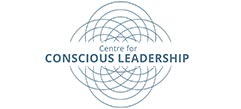Our Core
Methodologies
At Centre for Conscious Leadership we embrace dealing with complex issues and by dealing with these issues we are able to help leaders to deepen their insights, self-understanding and effectiveness. Transformation through conscious leadership gives leaders the opportunity to be brilliant, rather than competent. We use psychometric diagnostics, consulting processes based on robust theory and proven practice, individual and team coaching.
Our approach promotes self and interpersonal awareness along with systematic thinking.
Consciousness, mindful self-awareness and self-masteryA cornerstone of all of our work is the cultivation of consciousness, which we believe begins with mindful self-awareness and self-mastery. Self-awareness is not linear and must be understood as a journey starting with self through to the context in which we operate. This is both an inside out and an outside in process. This encompasses self-awareness, impact on others, team awareness and awareness of the organisational and societal context in which we operate. We seek to help leaders become more conscious of and present to their impact and able to work with what is unfolding in the moment. Conscious leaders have the awareness to choose a more mindful and productive response rather than reacting to things. |
Process Oriented Psychology (POP)We draw from Process Oriented Psychology, which gives our facilitators additional skills in creating a safe environment for team dialogue. Process oriented psychology is an integrative and holistic approach to understanding the range of human behaviour, diversity issues and conflicts that occurs in individuals and groups. This adds an additional dimension, which equips facilitators to be able to surface unrecognised dynamics within groups. |
|
A Depth ApproachHuman behaviour is motivated by rational as well as irrational drivers, which are often unconscious and are beneath our every-day awareness. We have learnt that to better understand the complexities of human behaviour and its impact on teams and organisations, we need to use intervention methods that include an exploration of both these conscious and unconscious dynamics. A depth psychology approach brings more awareness and understanding of individual, team behaviour and dynamics in a system. It acknowledges and makes explicit the rational, cognitive, emotional, irrational and political processes underlying interpersonal, group and organisational interactions. We seek to go beyond short term and superficial solutions and interpret and understand things at a more fundamental level. |
Dialogic Facilitation MethodologiesDialogue allows for richer conversations and deeper communication. The capacity to engage in productive conversations and robust collective dialogue is a strategic organisational imperative rather than a choice. Strong facilitators and proven dialogue methodologies make it possible to surface both difficult issues and constructive alternatives. |
|
Systems ThinkingSystems thinking is an expanding body of knowledge, which enables leaders to understand both the complexity and the connections within and between systems. Awareness of larger systemic issues enables leaders to make better sense of the layers and dynamics in any organisational system. As a fundamental lens of conscious leadership, systemic awareness forms an important backdrop for making sound organisational decisions. |
Problem focused and appreciative orientationEvery organisation has a positive core of many things that work and that should be built on to enable and sustain systemic change. This does not mean glossing over or denying problems and issues. Rather it is about balancing a problem-centred orientation that focuses on addressing key underlying issues and critical gaps with an appreciative orientation that identifies and builds on what is working in a system and what people value and feel inspired by. |
|
Psychometric and other assessment methodologiesAs registered psychologists we have access to a wide range of validated diagnostic assessments and psychometric instruments to support our interventions at an individual, team or organisational level. We supply a number of 360 questionnaires, BarOn EQi (Self-assessment and 360 formats); Myers Briggs Basic and Step II; Thomas Kilmann Conflict Modes; Enneagram; Leadership Archetypes and other frameworks that may help with structural and systemic dynamics. |
